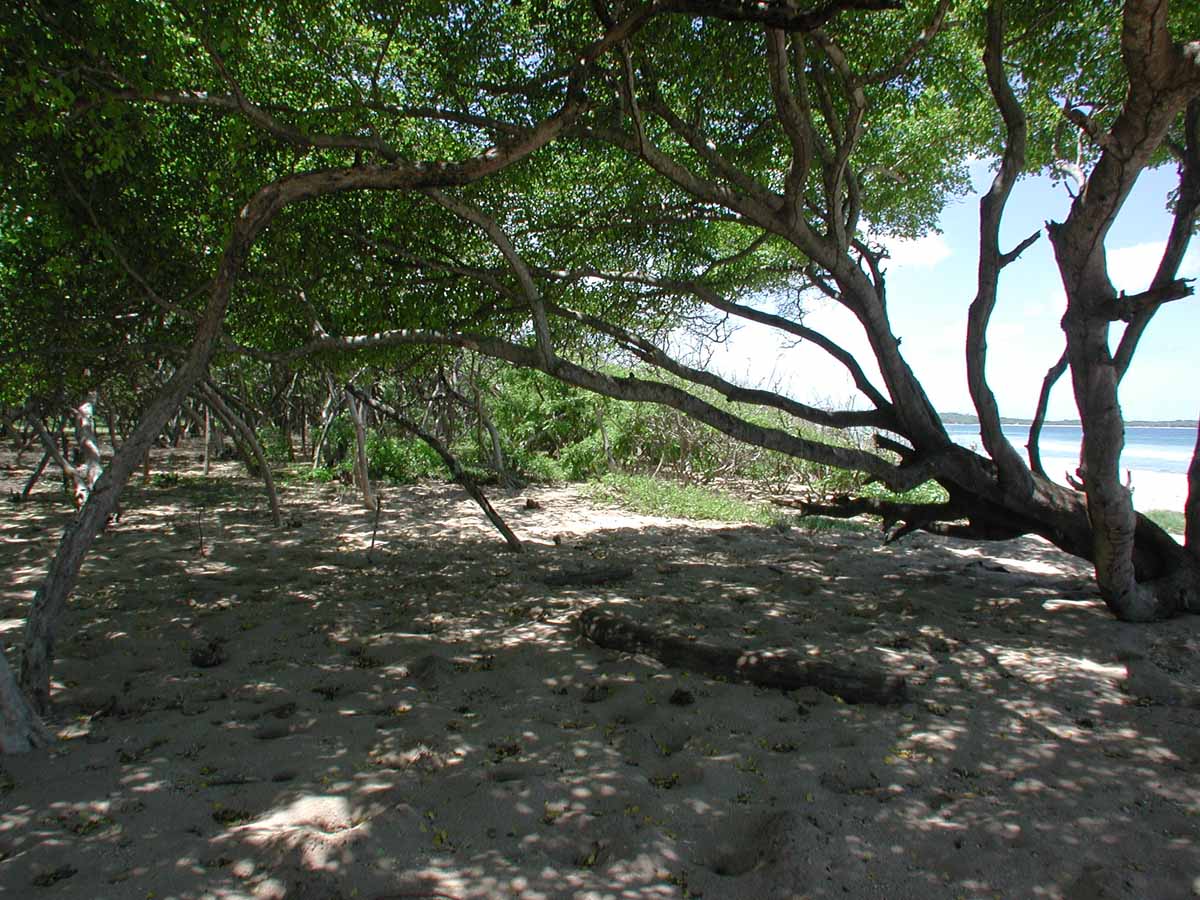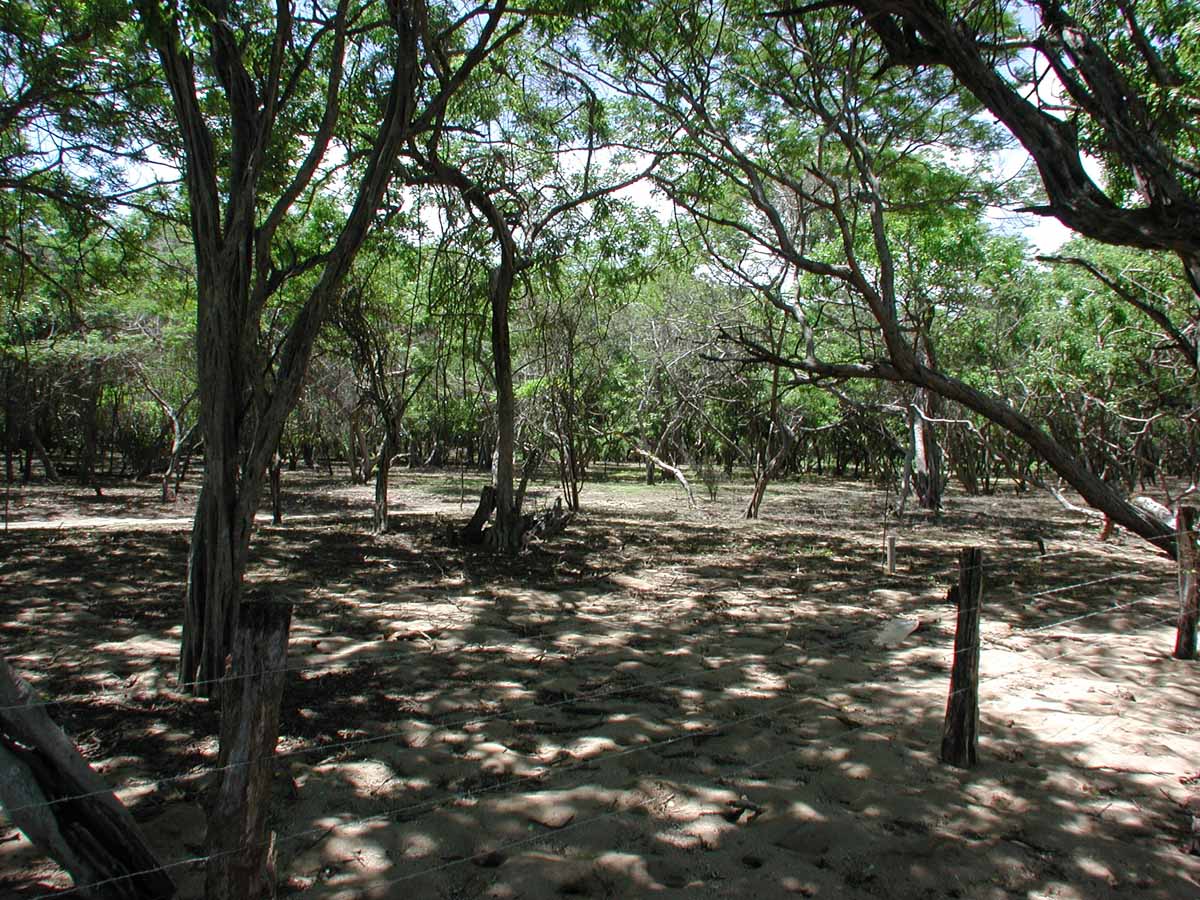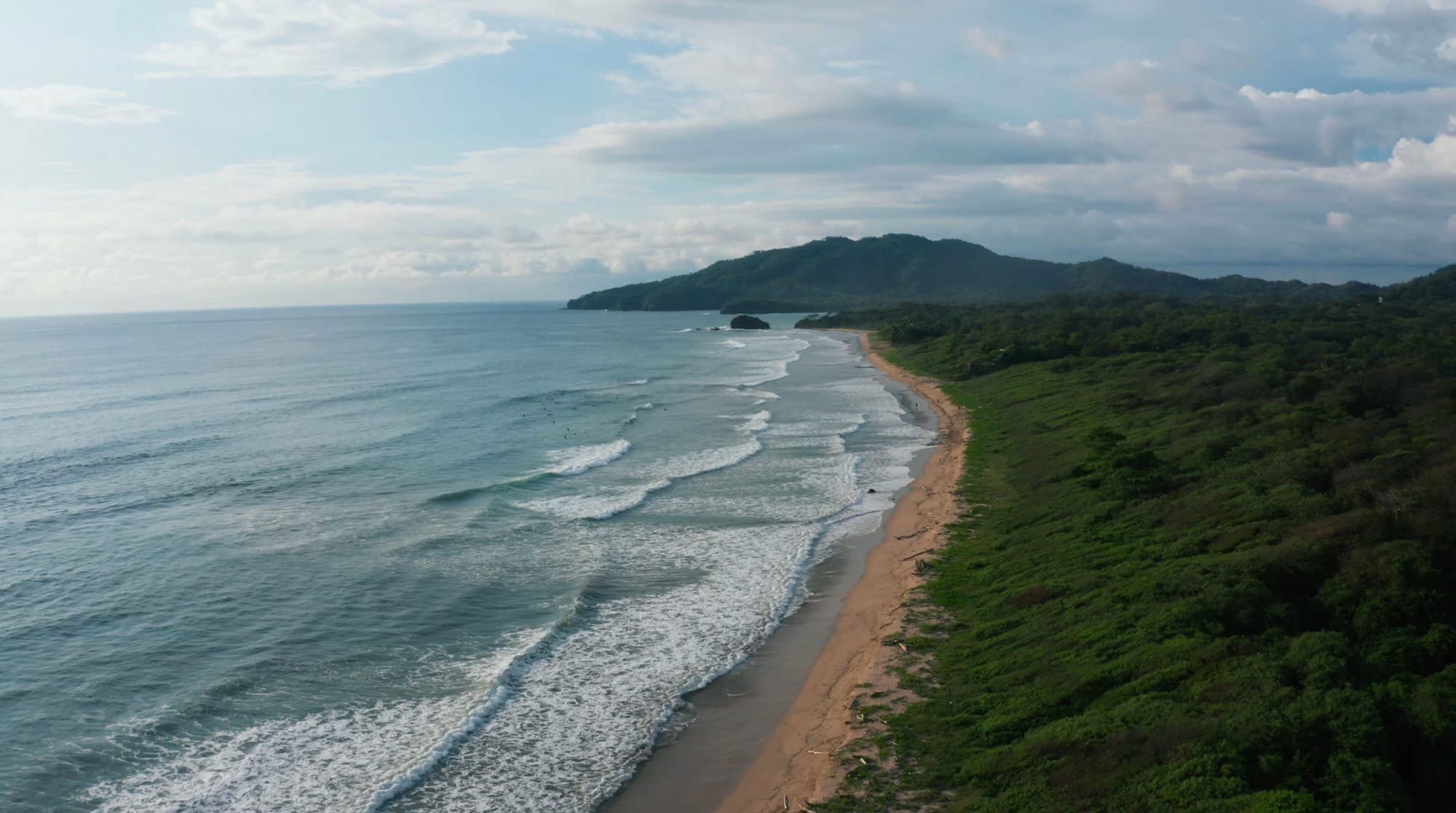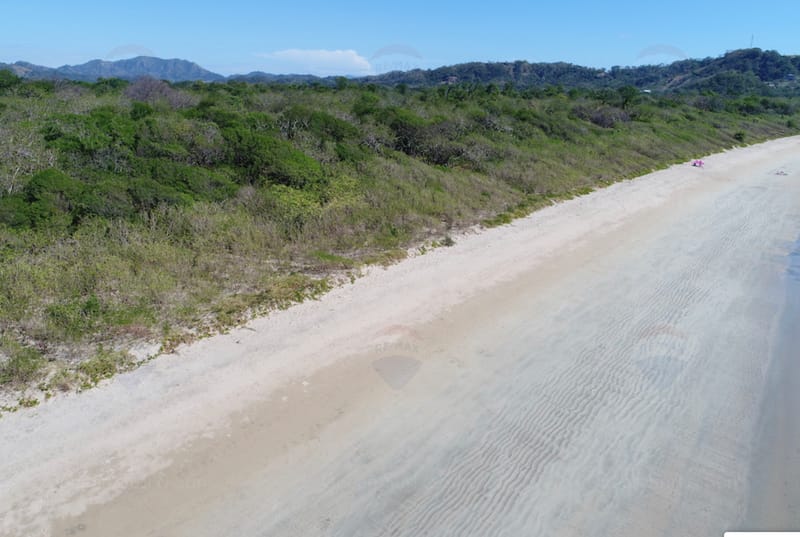Titled Beachfront Real Estate
for Sale in playa Grande, Costa Rica
In the heart of playa Grande, with 250 meters of beachfront, the last Jewell of the Gold Coast
Unlike some of the more commercialized areas of Costa Rica, Playa Grande has maintained much of its natural charm. For those looking to invest in a slice of paradise, where they can escape the hustle and bustle of city life and immerse themselves in nature,
Playa Grande is a prime choice. The mesmerizing sunsets, the gentle sounds of the waves crashing, and the diverse flora and fauna all contribute to a sense of serenity that's hard to find elsewhere.
More Information
Playa Grande The Nature Sanctuary
Articles
Discover Playa Grande's unparalleled beachfront opportunity in the heart of Guanacaste, Costa Rica. This article delves into the exclusive, fully-titled property available for sale, emphasizing its immense potential for visionary developers and investors.
Read MoreExplore the unparalleled surfing allure of Playa Grande in Guanacaste, Costa Rica. This article delves into the beach's consistent wave conditions, catering to both novices and pros. Highlighting its unique geographical attributes, the piece also emphasizes the beach's preservation efforts due to its proximity to Las Baulas National Marine Park.
Read MoreGuanacaste, is not just renowned for its pristine beaches, diverse ecosystems, and vibrant culture. It is also home to a rich culinary heritage that is a reflection of its history, climate, and the daily life of its people.
Read MoreBetween the untouched serenity of Playa Grande and the vibrant ethos of Playa Tamarindo lies a stretch of coast that offers the best of both worlds. This region, blessed with natural beauty and an eclectic community, fosters a lifestyle that is both relaxed and energized, traditional yet cosmopolitan
Read MorePlaya Grande
Your next address
F.A.Q
What is the difference between property fully titled and concession in the ZMT?
- Nature of Ownership:
- Fully Titled Land: The owner has full legal rights over the property. It means they have a clear title, granting them the ability to sell, lease, mortgage, or develop the land, provided they follow local regulations.
- Concession in ZMT: Properties in the ZMT are not owned in the traditional sense. Instead, they are managed by the Costa Rican government, which can grant concessions. A concession is similar to a lease, allowing an individual or entity the right to use the land for a specified period, typically 20 years, which can be renewed.
- Location:
- Fully Titled Land: This can be anywhere in Costa Rica and isn't limited to any specific zones.
- Concession in ZMT: The Maritime Zone is a 200-meter strip from the high tide line along the coast. The first 50 meters is public land where no development or private ownership is allowed. The next 150 meters is the concession area, where the government can grant development rights through concessions, subject to specific regulations.
- Regulatory Bodies:
- Fully Titled Land: Standard property laws cover these lands, and the local Municipality usually handles land use and building permits.
- Concession in ZMT: The local municipality grants concessions, but they also need approval from the Costa Rican Tourism Board (ICT). Development in this zone needs to comply with the local zoning plan (Plan Regulador).
- Foreign Ownership:
- Fully Titled Land: Foreigners have the same rights as Costa Rican citizens when it comes to owning titled land, even without residency.
- Concession in ZMT: Foreign ownership has restrictions. A non-resident foreigner can own up to 49% of a concession. The remaining 51% must be owned by either a Costa Rican citizen or a legal entity where at least 51% of the ownership is Costa Rican. After five years of legal residency, a foreigner can own up to 100% of a ZMT concession.
It's essential to verify with a specialized attorney in the ZMT and conduct a thorough title search when someone claims to have a fully titled property within the ZMT to ensure its legitimacy.
What is the legal situation of the property?
In line with your request, I will proceed to analyze various estates located in Playa Grande, which are bordered, in part, by the non-transferable 50-meter zone in favor of the State:
HISTORICAL BACKGROUND OF THE MARITIME-TERRITORIAL ZONE
The maritime-territorial zone, previously known as the maritime mile, although currently mainly regulated by Law No. 6043 of March 2, 1977, has its origins in the colonial era through the Royal Decree of October 15, 1754. Various other legislations, such as Law No. 162 of June 8, 1828, General Land Law No. 13 of January 10, 1939, Law 2906 of November 24, 1961, Law No. 4071 of January 22, 1968, Forestry Law No. 4463 of November 23, 1969, Touristic Urbanization of the Maritime-Territorial Zone Law No. 4558 of April 22, 1970, and Law 5602 of November 4, 1974, have underlined the decision to maintain the maritime mile as a public domain, emphasizing its state ownership and the impossibility of its exploitation.
By Law 162, a maritime mile reserve was established on the coasts of both seas. With Law No. 11 of October 22, 1922, the extent of the maritime mile was defined as 1,672 meters from the ordinary high tide along the coasts of both seas and 500 meters along both riverbanks.
By Law 19 of November 12, 1942, the extent of the maritime-territorial zone was reduced to 200 meters from the ordinary high tide on the Atlantic coast and, on the Pacific coast, by Law 201 of January 26, 1943. These two laws allowed private parties to acquire land, excluding the 200 meters from the ordinary high tide, turning the remainder of the 1,672 meters into private domain.
This 200-meter measure remains in the Maritime-Territorial Zone Law No. 6043 of March 2, 1977.
Specifically, with the Transitional III of Law 4558 of April 22, 1970, 150 meters of the established 200-meter maritime-territorial zone were removed, allowing individuals who possessed lots or estates within the 200 meters to register them through the process of Possessory Information.
REQUIREMENTS SET BY TRANSITIONAL III
Transitional III of Law 4558 stated:
“Those who demonstrate possession of lots or estates in the maritime-territorial zone for over thirty years, in a calm, public, peaceful manner, and as owners, can request property titles for them, except for the reserve referred to in Article 6 of this law, even if they had possessed such properties for part of that time as tenants, through contracts signed with the State or its institutions. The procedure will be as stipulated by the current law on Possessory Information. In this case, there will be no limitation regarding the extent of the lot or estate to be registered in the name of the interested party."
From the above, the requirements were:
- Possession for more than 30 years, continuously, peacefully, publicly, and as an owner.
- Processing according to the current Law on Possessory Information.
However, Transitional III was repealed by Law No. 4847 dated September 13, 1971, published on October 4, 1971, which included the transitional provision:
"Possessory Information that had been presented to the Courts by September 8 will continue to be processed until their conclusion."
Based on the above transitional provision, both the Attorney General's Office and various jurisdictional resolutions have interpreted that by referring to "courts," the process could not be conducted before the ITCO (Institute of Lands and Colonization).
In an extraordinary session at 2:00 PM on November 2, 1972, the Full Court addressed a constitutional challenge against the aforementioned transitional provision, declaring it unconstitutional only insofar as it backdated the effects of Law 4847 to its enactment date and not its publication date.
STATEMENT NO. C-128-99 FROM THE ATTORNEY GENERAL OF THE REPUBLIC
As set out in Article 6 of the Maritime-Territorial Zone Law No. 6043 of March 2, 1977, this law will not apply to "…areas of cities located on the coasts, nor to registered properties, subject to the Law, in the name of individuals, nor to those whose legitimacy is recognized by the laws.”
The same interpretation is established in the Transitional V of the indicated law, which, in part, provides: “…This law will not apply to areas of cities located on the coasts, nor to those properties that have been registered in the name of individuals, nor to those whose legitimacy is recognized by the laws.”
The aforementioned statements mean that, in principle, any property registered in the name of a particular individual prior to the entry into force of Law No. 6043 of March 2, 1977, would not be affected by it.
However, Law No. 6043 does not specify which prior registrations are valid and legitimate. For that reason, it is necessary to refer to the legislation that existed at the time of the enactment of Law No. 6043.
It is important to emphasize that all those properties that are duly registered and whose registrations were carried out in accordance with the Law, and in respect to which no reservations were established by the Civil Registry, are legitimate and not affected by Law No. 6043.
Given the above, it is essential to thoroughly review each property you are interested in to determine whether it falls within the exceptions provided by the legislation and, thus, whether it is free from the effects of the Maritime-Territorial Zone Law.
CONCLUSION
Based on the above information:
- The maritime-territorial zone has a historical and legal foundation that has restricted its private ownership and exploitation.
- Transitional III of Law 4558 was the only way properties in the maritime-territorial zone could be registered in the name of individuals, but it was repealed, limiting its application.
- Law 6043 exempted properties registered prior to its enactment, provided they complied with the law at the time of their registration.
The Simen property is full titled and was registered by both way, administrative and judicial on time.
What kind of environmental restriction apply for this property?
Why invest in Costa Rica?
- Stable Democracy: Costa Rica has enjoyed a stable democracy for several decades. This political stability has fostered a secure environment for both local and foreign investments.
- Strategic Location: Its position between North and South America, with ports on both the Pacific and Caribbean coasts, makes it a strategic location for business, especially for logistics and trade.
- Free Trade Agreements: Costa Rica has multiple free trade agreements in place, including with the United States (CAFTA-DR), China, Canada, and the European Union, providing preferential access to markets that represent two-thirds of the world's GDP.
- Educated Workforce: The country has a high literacy rate and an emphasis on education, which ensures a skilled and trainable workforce.
- Incentive Programs: Costa Rica offers several incentives for foreign investors, particularly in the free trade zone regime, which provides tax breaks and other benefits to companies, especially in the high-tech, manufacturing, and services sectors.
- Natural Beauty and Biodiversity: With a commitment to environmental conservation, Costa Rica's diverse ecosystems, beaches, and wildlife are a major draw for tourism investments.
- Renewable Energy: Costa Rica is a leader in renewable energy, with around 98% of its electricity coming from renewable sources, such as hydro, wind, and solar. This commitment to sustainability can be attractive for eco-minded investors.
- Booming Tourism: Tourism is one of the country's main economic drivers, and the sector has witnessed consistent growth over the years. There are opportunities in eco-tourism, luxury resorts, adventure tourism, and more.
- Real Estate Market: The real estate market, especially in coastal areas and around the Central Valley, has seen significant growth. Investors can find opportunities in both residential and commercial sectors.
- Healthcare and Medical Tourism: Costa Rica is becoming increasingly popular for medical tourism due to its high-quality healthcare services at a fraction of the cost found in countries like the U.S. Investment opportunities exist in health facilities, wellness retreats, and specialized clinics.
- Business-Friendly Environment: The government is pro-business and has been taking steps to make it easier to do business in the country, such as reducing bureaucracy and streamlining processes.
- Diverse Economy: Costa Rica's economy is varied, spanning sectors like agriculture (coffee, bananas, and pineapples), technology, finance, and pharmaceuticals. This diversity provides a wide range of investment opportunities.
- Safety: Costa Rica is one of the safer countries in Latin America, which is conducive to business operations and attracting tourists.
- Cultural Ties and Global Integration: With a mix of local and foreign residents, Costa Rica offers a rich cultural experience. Its integration into the global community makes it easier for foreigners to settle, do business, and invest.
- Growing Tech and Start-up Scene: With a burgeoning tech scene and several multinational tech companies having their operations in the country, Costa Rica is positioning itself as a hub for innovation in the region.
Option available to segregate
Contact us
Don't miss your chance to own a slice of paradise! Contact us now to explore the endless possibilities with this prime beachfront property in Playa Grande, Guanacaste. Make your dream investment a reality today! Don’t hesite to contact us for any additional information.












